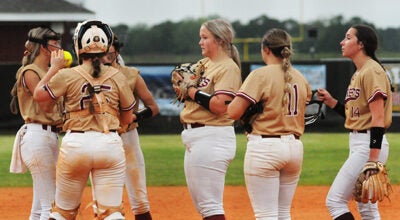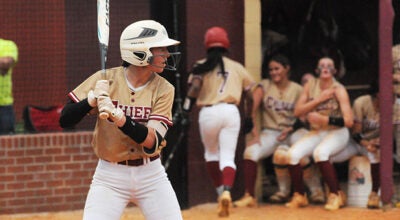For the Integrity of the Game
Published 6:53 pm Wednesday, September 26, 2012
A former head coach had a bitter taste in his mouth. The opposing team had to fly just under 2000 miles (sorry, Jon Gruden, it isn’t 6000 miles between Seattle and Green Bay) home knowing they lost the entire game because of a botched call.
The officiating in week one was mediocre. There were some missed calls, some questionable calls, but nothing too egregious. Things got a little hairier in week two. The questionable calls were more frequent and more, well, questionable. By the end of week three, every NFL fan was upset, even quite a few Seahawks fans.
Despite being the beneficiary of a win, the win came at the hands of a bad call of epic proportions. A tainted win isn’t much better than no win at all.
This time, the zebras had gone too far.
Last year, the much-hyped “Game of the Century” didn’t quite live up to the billing. LSU escaped Tuscaloosa with an overtime victory of 9-6. It might have been the game of the century if it was 1940. In that year, Minnesota beat Michigan 7-6 to win the national championship. In 2011, a 9-6 score isn’t exactly a game ESPN would normally salivate over.
The most disappointing thing about the game for many impartial football nerds was a blown call. Alabama reached deep into the playbook and tried to get a touchdown when wide receiver Marquis Maze threw up a pass to big tight end Michael Williams.
Because of the simultaneous possession rule, Williams should have either been awarded a reception down at the one-yard line or the play should have been ruled dead. The call depends on whether or not the referee believed Williams maintained possession. If he maintained possession, then the rule states the offensive player is awarded the call. If he didn’t maintain possession, then the play is dead and it should have been an incomplete pass.
Instead the referee awarded an interception to LSU defensive back Eric Reid, who wrestled the ball away from Williams after he had already made contact with the ground. In the end, Alabama destroyed LSU in the national championship and the blown call wasn’t as big of a deal as could have been.
In Monday night’s NFL game of the Packers versus the Seahawks, a similar blown call may have serious repercussions.
The worst part of the call was clear offensive pass interference by Seahawks receiver Golden Tate when he completely knocked over Packers cornerback Sam Shields by shoving him. Therefore, no matter what happened after the correct call was applied, the game should have been over.
If we completely ignore the offensive pass interference, it could be argued that because of the simultaneous possession rule, Golden Tate had the touchdown. This is really the only argument the replacement official can use and because Tate had the ball when the pile cleared (much like Eric Reid, Tate wrestled the ball away from Packer M.D. Jennings) he may have felt more justified in making such a call. However, replays showed safety Jennings coming down with the ball.
Admittedly, it was a tough call to make from a television screen in real time speed. But bear in mind, the referees were hovered directly over Jennings and Tate, so their vantage point was a little better than that of the fans. One referee ruled a touchdown, while another ruled a touchback. Fans should be able to spend their week discussing what a great game they saw and not how a great game was ruined by a botched call.
The bottom line is this: the referees missed a call that determined the outcome of a game. It may not make a difference three months from now, but it may also be the difference between the Seahawks making or not making the playoffs. If may be the difference between the Packers having a bye in the playoffs, assuming they’re able to make the playoffs. Alabama had a second chance in overtime to beat LSU. Green Bay wasn’t lucky enough to get such an opportunity.
The NFLPA sent a letter to NFL commissioner Roger Goodell requesting a return of the regular referees in the name of player safety. Goodell has talked incessantly about how important player safety is for the league. If this is true, then it is past time for the regular referees to return, not only in the interest of player safety, but for the integrity of the game.





